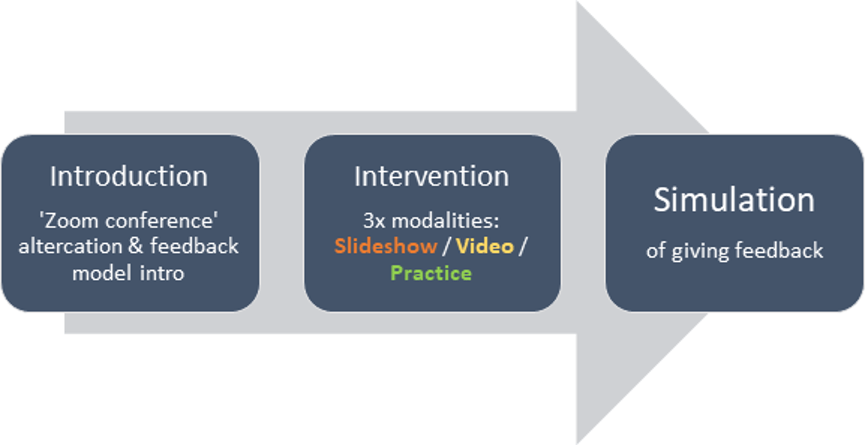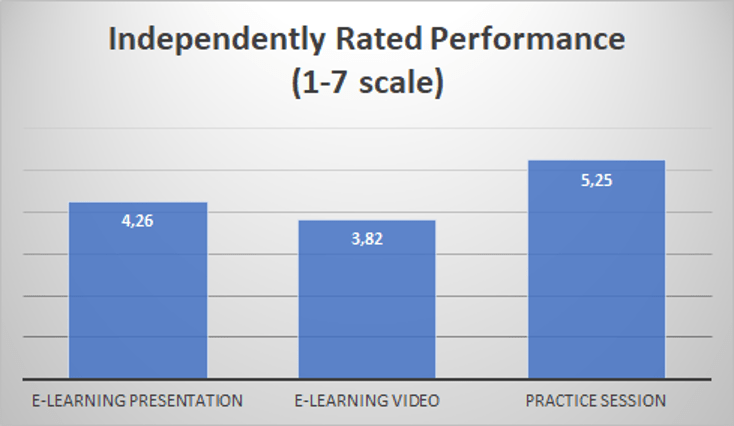In a nutshell, it all comes down to practice, and ensuring that practice is a fundamental of all development activity.
Practice Room Online (PRO) recently collaborated with a UCL Masters student, Ben Laumann, on an original experiment to prove the value of practice, as a key method for personal improvement. The research focussed on people preparing to manage difficult conversations, specifically, giving feedback, and compared the value of active practice, with passive e-learning.
The results were conclusive, proving a 20% better performance for those participants who had actively practiced.
Not a total surprise, you may say – but how many development programmes invest in the opportunity for participants to actively practise their newly learned skills within their design?
The research proves that building practice opportunities into development programmes, leads to better performance.
At this time of tightening development budgets, the research provides valuable evidence that training spend, will generate a performance return.
A closer look at the research project.
Ben started from the premise of wanting to prove the value of practice and designed an experiment to try to prove this. Although the team here at PRO fully supported his proposition, we did not interfere with the research; it was very important for us for Ben to find the real answer, not the answer we wanted to hear.
When he presented the results, that practice led to a 20% better performance than passive e-learning conditions, we were therefore pleased, but not surprised.
In Ben’s experiment, 60 participants were recruited to test how three different development interventions led to different ultimate performance. The development goal we chose was improving how people give feedback – which we know to be a vital communication skill in all organisations.
When he presented the results, that practice led to a 20% better performance than passive e-learning conditions
There were three key parts of the experiment method:
-
- All participants watched a video of a Zoom meeting observing an altercation between two individuals (simulated by actors). They were then informed that they would need to give feedback to one of the individuals, and were introduced to a particular model to provide that feedback (SBI model).
-
- Each participant was then randomly allocated to one of three different development conditions:
a) Read an e-learning presentation on the SBI model and think about how to use it
b) Watch an e-learning video on the SBI model and think about how to use it
c) Practice giving feedback with a live Practice Coach (accessed remotely) and receive feedback, on their feedback
- Each participant was then randomly allocated to one of three different development conditions:
- The participants took part in a live Zoom meeting, with one of the actors from the initial video, to give them the feedback. This performance condition was videoed for subsequent assessment.

Fig 1: Experimental method
The videos were then independently assessed, by two professional assessors, and the results showed a marked difference between the three conditions – a 20% better performance for those who had practiced.


